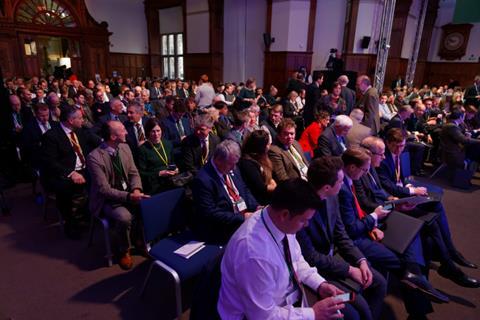Without small abattoirs the UK would not have local and traceable meat production. This is the message that experts at the recent Oxford Farming Conference asserted to delegates.

Speaking at last week’s conference, the experts considered how the future of the small abattoir sector still hangs in the balance with only 56 small red meat abattoirs left in the UK and a third having closed between 2007 and 2017 – plus a further seven closing in 2018.
The findings of a survey were presented by Campaign for Local Abattoirs lead Bob Kennard and showed a sector under pressure.
One abattoir owner described running their business as a “continual struggle”.
None of the abattoir owners surveyed considered their profitability to be ‘good’, whereas half of them described it as ‘poor’, and over 10% said they were making a loss.
This is due in part to a combination of high running costs and, with a growing move away from using natural animal by-products and towards synthetics, and a collapse in the value of products that had previously provided income, particularly hides and skins.
President of National Craft Butchers and small abattoir owner, John Mettrick, said: “Recently we slaughtered 89 lambs but received only 10 pence each for their skins, in addition to being charged £1 for 12 that were damaged.
“This resulted in us actually making a loss for something that in my father’s day would have generated about £500 in profit.”
On top of this loss, small abattoirs must pay £800-£1000 per month to have their waste taken away.
This is said to have a knock on effect for farmers and retailers, as abattoirs have no choice but to pass on these costs.
Nick Allen, chief executive of the British Meat Processors Association, called for recognition that small abattoirs are “the sharp end of the market and a useful alternative to relying on mainstream outlets, which can often mean big retailers dominate. We need to keep as many open as possible.”
Patrick Holden, chief executive of the Sustainable Food Trust, said: “We can only bring change if we can touch the hearts and minds of the public. We need a campaign looking at how far animals have to travel to slaughter and bring this issue to the attention of consumers.”
Lady Parker who chaired the session said: “All participants agreed that small abattoirs cannot survive in the current economic climate unaided.
“They will only have a sustainable future if it is recognised that they provide a vitally important service, and they receive financial support to subsidise some of the excessive costs they currently face, based on the concept of public support for the public good they provide."
This story was originally published on a previous version of the Meat Management website and so there may be some missing images and formatting issues.















